Politics
/ArcaMax
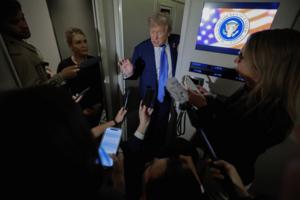
Trump meets with security team after demanding Iran 'surrender'
WASHINGTON — President Donald Trump was meeting with his national security team in Washington on Tuesday to discuss the escalating Middle East conflict, according to people familiar with the matter, fueling fresh speculation that the U.S. is on the verge of joining Israel’s attack on Iran.
Before gathering his advisers in the White House ...Read more
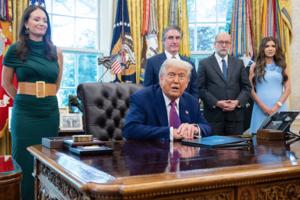
Trump flip-flops again on mass deportation raids targeting farms and hotels
President Trump has flip-flopped again on mass deportation by ordering the resumption of raids targeting work sites in the agriculture and hospitality industries, just days after officials halted them under pressure from big business.
Trump’s Department of Homeland Security reversed the brief pause in raids on farms, meatpacking plants and ...Read more
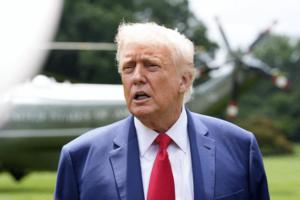
Analysis: As MAGA base grows anxious, Trump warns Iran's supreme leader is 'easy target'
WASHINGTON — President Donald Trump has talked and maneuvered himself into a policy stance on the Israel-Iran conflict with no clear strategic objectives and a slew of contradictory words and actions.
After some hesitation, his backing of Israel has made some loud opinion-makers in his MAGA movement anxious, and some followers are worried he�...Read more

Should abortion be legal? The gender divide is at record-high, poll finds
On the subject of abortion, men and women have never been more divided, according to new polling.
A recent Gallup survey revealed record gender gaps among Americans when it came to opinions about the politics, legality and morals of abortion, an issue that has long sparked significant disagreement.
The poll — which sampled 1,003 U.S. adults ...Read more

What do Americans think of 'No Kings' protests? Here's what a new poll found
Americans are divided over the “No Kings” protests, which were held across the country on Saturday, according to new polling.
The demonstrations — which coincided with President Donald Trump’s 79th birthday and the U.S. Army’s 250th anniversary parade in Washington, D.C. — were a response to what organizers called the president’s ...Read more
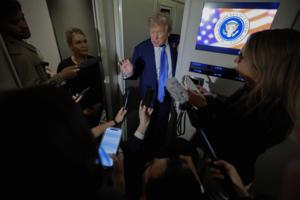
Trump seeks Iran's 'unconditional surrender' as war escalates
WASHINGTON — Israel and the United States are ratcheting up pressure on Iran, sparking fresh speculation that Washington could be preparing to join in the attack launched by its closest Middle East ally.
President Donald Trump said he wants a permanent end to Iran’s path to a nuclear weapon, after an early departure from the Group of Seven ...Read more
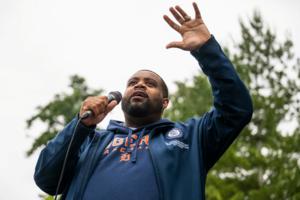
Bernie Sanders backing Thanedar challenger McKinney in Detroit
DETROIT — Progressive U.S. Sen. Bernie Sanders of Vermont is backing a Michigan state lawmaker who is trying to unseat two-term U.S. Rep. Shri Thanedar of Detroit.
Sanders said Tuesday that he's endorsing state Rep. Donavan McKinney, who is running for Congress in Michigan’s 13th District, because he's taken on special interests in the ...Read more
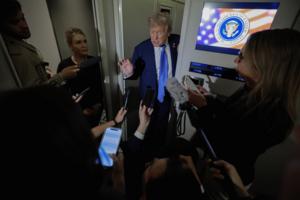
Trump says he will not call Gov. Tim Walz following deadly Minnesota shootings, saying it's 'waste of time'
President Donald Trump will not call Gov. Tim Walz in the aftermath of the deadly shootings in Minnesota that killed a Democratic legislator and injured another, saying it would be a waste of his time.
“I’m not calling him,” Trump said when asked, the Associated Press reports. He then proceeded to call Walz “slick” and “whacked out....Read more
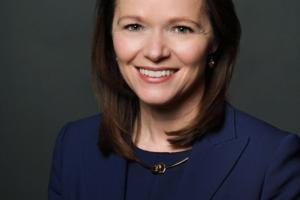
Iowa Democrat launches third challenge to vulnerable GOP Rep. Miller-Meeks
WASHINGTON — Iowa Democrat Christina Bohannan, who lost to Republican Rep. Mariannette Miller-Meeks by 799 votes last year, is launching a third run for the battleground seat, hoping a more favorable political climate will push her to victory.
“Mariannette Miller-Meeks has had three terms in Congress – three chances to do right by the ...Read more
Trump says he wants a 'real end,' not just ceasefire in Iran
U.S. President Donald Trump said his early departure from the Group of Seven leaders meeting in Canada has “nothing to do” with working on a ceasefire between Israel and Iran, adding that his reason is “much bigger than that.”
Asked aboard Air Force One what he was looking for that could be better than a ceasefire, Trump responded, “...Read more

Commentary: Trump's war on Latinos reaches a new low in abuse of Sen. Alex Padilla
The U.S. population includes an estimated 65.2 million Latinos, nearly a quarter of whom call California home. For over a century, Latinos were absent from the state’s two U.S. Senate seats.
In 2022, Sen. Alex Padilla reversed the willful neglect of Latino senatorial candidates by both major political parties, winning 61.1% of the vote, more...Read more
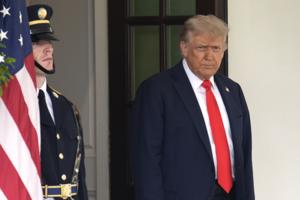
Editorial: Trump's big ugly -- One Big Beautiful Bill will do great damage
President Donald Trump’s One Big Beautiful Bill is indeed Big. But Beautiful it is not. The massive bill he is touting as the best thing to ever happen to America would be, no exaggeration, one of the worst pieces of legislation to come along in the modern era.
Take a seat if you don’t already have one so we can count the ways.
Many prior ...Read more
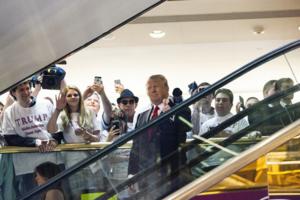
Editorial: A decade of deceit -- 10 years since Trump's infamous escalator ride that took America into the basement
It was exactly 10 years ago today that Donald Trump rode the escalator from the lobby of Trump Tower into the basement and changed the country forever.
Having known him well for decades as a local real estate promoter who was cast into a reality TV show where he of multi-bankruptcies played at being a business genius, we were not impressed by ...Read more

What do Americans think of 'No Kings' protests? Here's what a new poll found
Americans are divided over the “No Kings” protests, which were held across the country on Saturday, according to new polling.
The demonstrations — which coincided with President Donald Trump’s 79th birthday and the U.S. Army’s 250th anniversary parade in Washington, D.C. — were a response to what organizers called the president’s ...Read more
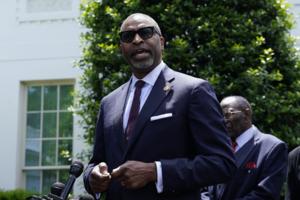
NAACP isn't inviting Trump to national convention in North Carolina, a first
CHARLOTTE, N.C. — Next month, the NAACP will host its national convention in Charlotte, but for the first time in its 116-year existence a sitting U.S. president will not be invited.
That declaration came from Derrick Johnson, the organization’s president and CEO who shared his remarks Monday to about 50 supporters, board members and media ...Read more

Security concerns shake Congress in the wake of Minnesota slayings
WASHINGTON — Joseph D. Morelle has fielded a torrent of calls in the days since one Minnesota legislator and her husband were shot and killed, and another and his wife were seriously injured.
The highest-ranking Democrat on the House Administration Committee said he’s been in touch with the Capitol Police and sergeant-at-arms, as well as ...Read more
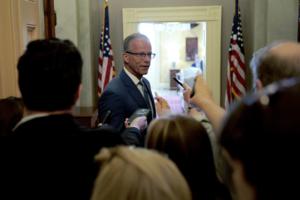
Senate Republicans release revised tax cuts and debt limit bill
WASHINGTON — Senate Republicans propose to cut trillions of dollars in taxes for households and businesses in their version of President Donald Trump’s signature economic package, a plan that comes at the expense of curbing health coverage for some low-income Americans and adding to U.S. deficits.
The new version of the bill expands some ...Read more

Army, Navy veteran Tripp Adams running for Congress in crowded Detroit-area race
U.S. Army and Navy veteran Tripp Adams announced his bid Monday for a suburban Detroit congressional seat, making him the fifth candidate in the Democratic primary field.
"I'm running because I'm pissed. I'm pissed at the Republican politicians who are attacking our Social Security, our Medicare and Medicaid," Adams, 48, said in a phone ...Read more
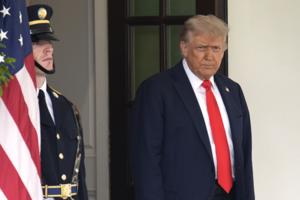
Trump appeals reinstatement of three Biden-appointed product safety commissioners
The Trump administration filed a notice of appeal Monday afternoon, after a federal judge recently ruled that President Donald Trump’s removal of three Biden-appointed U.S. Consumer Product Safety Commission (CPSC) members was unlawful.
U.S. District Judge Matthew Maddox ruled Friday that the president had fired former commissioners Richard ...Read more

Trump family launches branded mobile phone service in US
President Donald Trump’s family is getting into the mobile phone business with a Trump-branded service that will rely on pre-existing wireless networks and hardware that is “made in America.”
Trump’s sons, Eric Trump and Donald Trump Jr., unveiled the service, dubbed Trump Mobile, Monday at Trump Tower in New York on the 10-year ...Read more
Popular Stories
- Trump says Israel, Iran may need to 'fight it out' before deal
- Bowling alone, voting for Trump -- The collapse that made Trump possible
- Trump puts marginalized people at risk
- Security concerns shake Congress in the wake of Minnesota slayings
- Trump blocked Israeli plan to kill Iranian leader Khamenei























































